Is your iPhone touch screen not working? Do you know how to deal with this issue? Here are 8 ways to help you effectively solve the iPhone touch screen unresponsive after iOS 16.3 update issue and recover lost data effectively via MiniTool software.
iPhone Touch Screen Not Working
My iPhone touch screen is unresponsive after an iOS 16.3 update. A true example from discussions.apple.com is shown here:
Well, recently my iPhone's screen just decided to not work, as the touch functions do not work. The sleep/off button and the home button works fine, but I can't use the touch screen. So, please reply because I want to go back to using it.
discussions.apple.com
Have you ever encountered the same issue? What should you do if your iPhone screen isn’t working? Why is your iPhone touch screen not responding? How to fix the iPhone touch screen not working issue after updating to iOS 16.3?
If you have not yet found any solutions, you can find a suitable one in this article.
Here, this post will show you several ways to help you fix the touch screen not working issue of an iPhone.
Before fixing the iPhone screen not responding issue, you should make sure your hands are clean and dry, and then try these steps:
- Remove any case or screen protector on your device.
- Clean the screen with a soft, slightly damp, and lint-free cloth.
- Charge your iPhone using its original charger and cable.
- Unplug any external devices connected to your iPhone.
8 Ways to Fix iPhone Touch Screen Not Working
Solution 1. Restart iPhone Device
Before rushing into any other troubleshooting procedures, you can restart your iPhone to fix your iPhone screen not responding issue by trying the following steps.
First, hold and press the Sleep/Wake button for a few seconds until the slider appears.
Second, slide to power off your device.
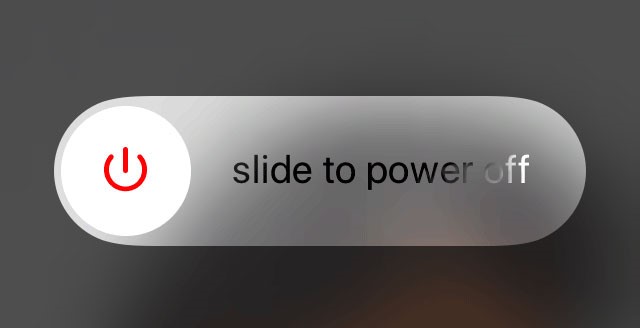
Finally, turn it back on by pressing and holding the Sleep/Wake button until you see the Apple logo.
In many cases, the touch screen will work as usual after the device reboots.
Solution 2. Adjust 3D Touch Sensitivity
Sometimes, iPhone 3D Touch sensitivity will cause the iPhone touch screen not working issue. Therefore, you need to check and try to fix this issue by referring to the following steps.
Step 1. Navigate to Settings.
Step 2. Tap General > Accessibility > 3D Touch.
Step 3. Scroll down to toggle 3D Touch On/Off, or adjust the sensitivity to Light, Medium, or Firm.
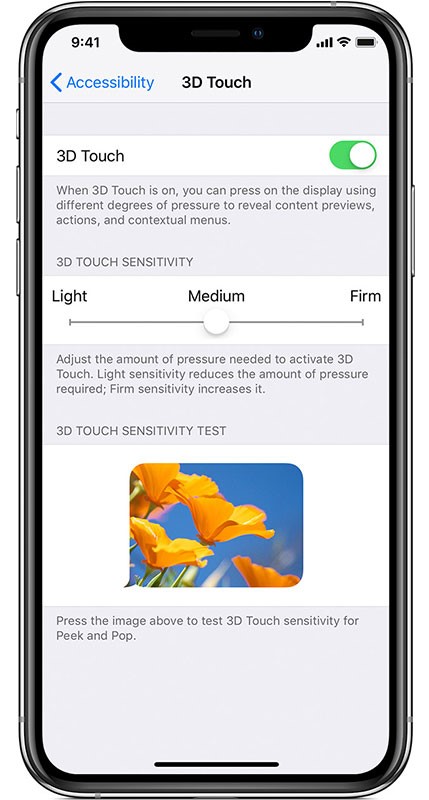
Solution 3. Diagnose Third-party Apps in Safe Mode.
Sometimes, one particular app will cause the iPhone screen isn’t working issue. In this case, you can uninstall faulty applications in Safe Mode to fix the touch screen not responding issue.
Here’s how to enter the safe mode:
Step 1. Press and hold down the Power and Home buttons simultaneously until the screen turns black.
Step 2. Next, release the Home button but continue holding down the Power button.
Step 3. Hold the Volume Up when the Apple logo appears until the springboard loads up.
If you see no more tweaks under the Settings menu, you are already in Safe Mode. Now, all third-party apps and services are disabled.
If the touchscreen works fine in Safe Mode, it means that there is software conflict that leads to the “iPhone touch screen not working” issue. Therefore, you can disable or uninstall the most recent apps you’ve installed.
Then exit Safe Mode and restart your iPhone. After rebooting, your device will switch back to normal mode.
Solution 4. Free up Space on iPhone
If your iPhone has no storage available, you may encounter the “touch screen unresponsive” issue.
Therefore, it is recommended to verify and ensure that your iPhone has sufficient memory space by following the steps below.
Step 1. Tap Settings on your iPhone.
Step 2. Choose General > Storage & iCloud Usage > Manage Storage.
Now, you will see the details of the current memory status including the available memory of your iPhone. If there is no more free space, you can delete some unwanted apps, files, photos, and other unnecessary content from your iPhone to free up more space on your device.
Solution 5. Downgrade to the Former iOS Version
As we know, not all generations of iPhones are suitable for upgrading to the new iOS 16.3 due to the incompatibility of the hardware. Therefore, some users might encounter the iPhone touch screen unresponsive issue after iOS 16.3 update issue. Here, you can downgrade your iPhone from iOS 16.3 to iOS 15 to solve the problem.
Solution 6. Reset Your iPhone
You can try to do a factory reset if the touch screen is completely unresponsive. Please follow the steps below to reset your iPhone or iPad.
Step 1. Go to Settings.
Step 2. Click on General, and select Reset. Then select Erase All Content and Settings.
Unfortunately, resetting your iPhone will delete all data on your device, including photos, messages, contacts, etc. Is it possible to recover the files?
Now, the good news is that MiniTool Mobile Recovery for iOS can help you effectively recover lost data.
As a professional and easy-to-use iPhone data recovery tool, MiniTool Mobile Recovery for iOS offers 3 data recovery modules to help you easily and quickly recover lost data from all data loss situations including accidental deletion, iOS upgrade, device crash… Here, you can download the free edition and try it out.
MiniTool iOS Recovery on WindowsClick to Download100%Clean & Safe
Note: MiniTool Mobile Recovery for iOS offers a Windows version and a Mac version for your use. Here this post takes Windows OS for example.
Module 1. Recover files from iTunes backup files
If you have backed up your important data before the iPhone touch screen not working issue occurs, you may choose the “Recover from iTunes Backup File” or “Recover from iCloud Backup” button to recover lost data.
However, MiniTool Mobile Recovery for iOS is unable to get iOS 9 and the later version backup files due to the limitation of iCloud. That is to say, if the iCloud backup was made when running iOS 9 or the later iOS version, you cannot use this recovery module because it will not detect the iCloud backup file successfully.
Thus, here you can see how to recover lost files from an iTunes backup file. You can find the needed data conveniently because this tool shows the backup files to you in a very intuitive way.
Step 1. Open MiniTool Mobile Recovery for iOS and select Recover from iTunes Backup.
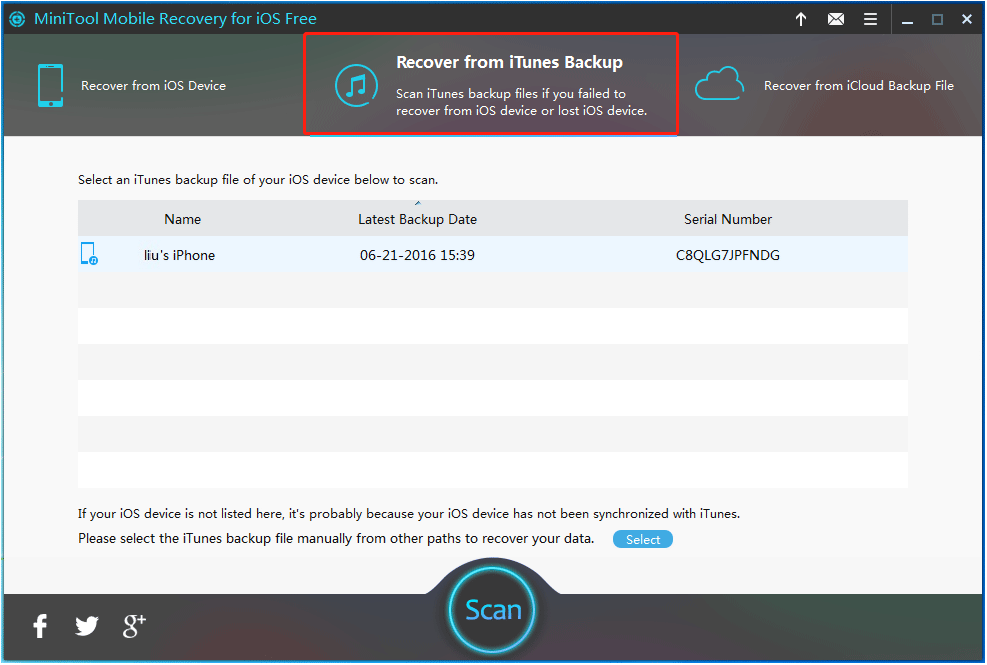
Step 2. Pick out the needed backup file through Name, Latest Backup Date, and Serial Number.
Note: If the backup files are stored in a special location, you can click on Select to find them out and then click on the Add button.
Step 3. Select the specified backup file and choose the Scan button. The scanning time is determined by the capacity of iTunes backup. Please wait patiently.
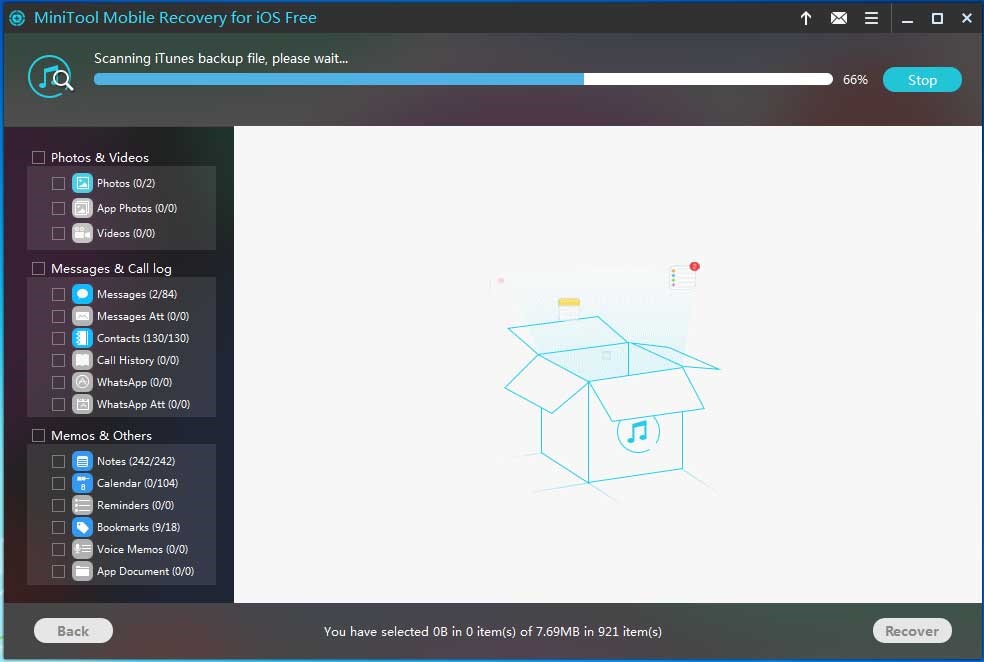
Step 4. After scanning, find and select the wanted files through the file category list. Then click on the Recover button to start the restoration job.
Step 5. You will be allowed to keep the files in a safe location. Or you can click on the Browse button to save the file somewhere trustworthy.
Step 6. Finally, click on Recover to store all selected files on the computer.
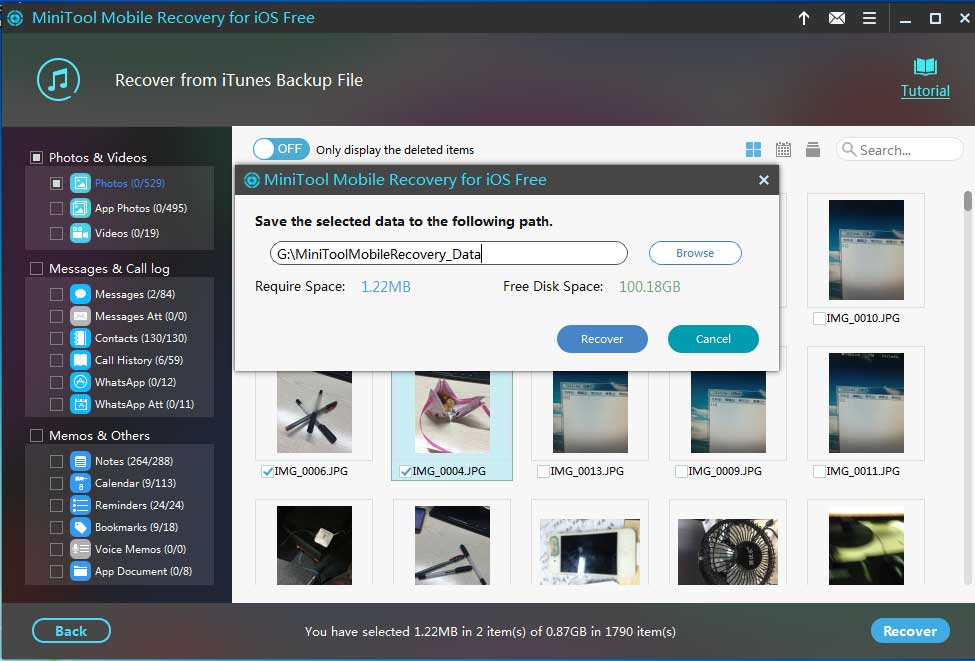
Module 2. Recover files from iPhone device
What should you do if there are no iPhone backup files? Don’t worry, MiniTool Mobile Recovery for iOS can also help you recover lost data by scanning the entire device.
Step 1. Install the latest iTunes on your computer.
Step 2. Connect your iPhone to the computer.
Step 3. Open MiniTool Mobile Recovery for iOS. Then, the following interface will appear instructing you how to trust your computer.
Step 4. Click Trust when you see the Trust This Computer box on your iOS device’s screen (If you have a passcode lock, please unlock it first).
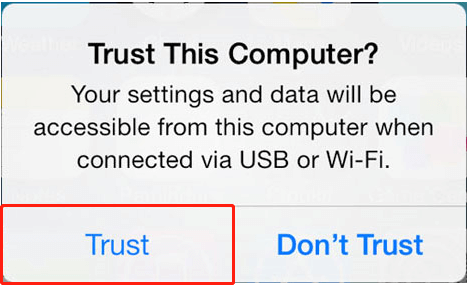
Step 5. Now, click on the Scan button. Then, this software will automatically analyze the data saved on the iOS device.
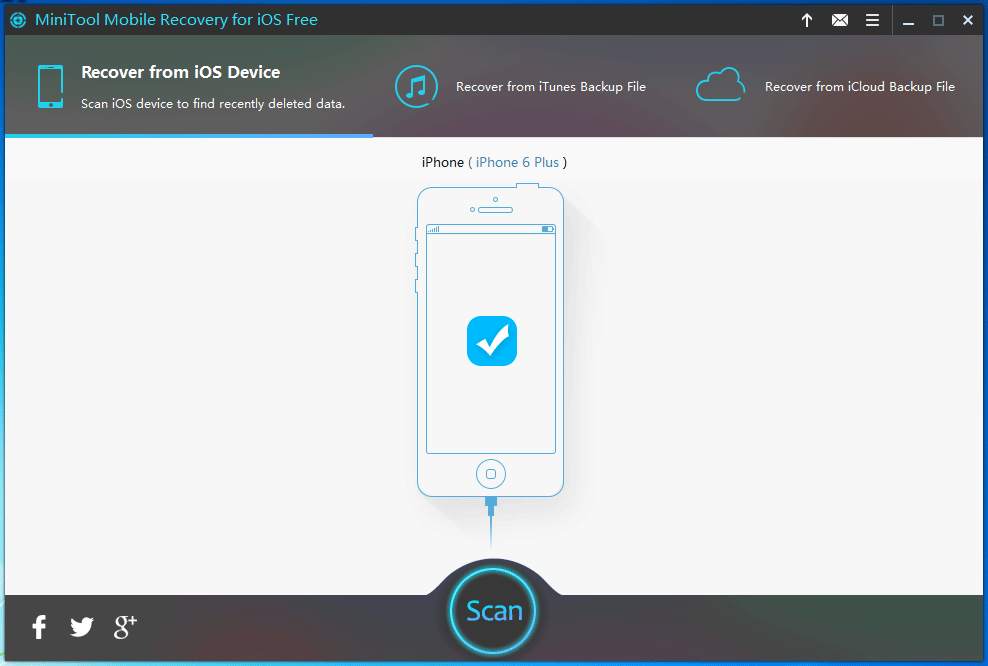
Note: If the iOS device is encrypted, you need to enter a password to unlock it after the analysis is done.
Step 6. After analyzing the iOS data, the software will scan the device. The scanning time depends on the amount of data saved on the device. Please be patient. Here, in this window, you can click the Stop button if you have found the desired files.
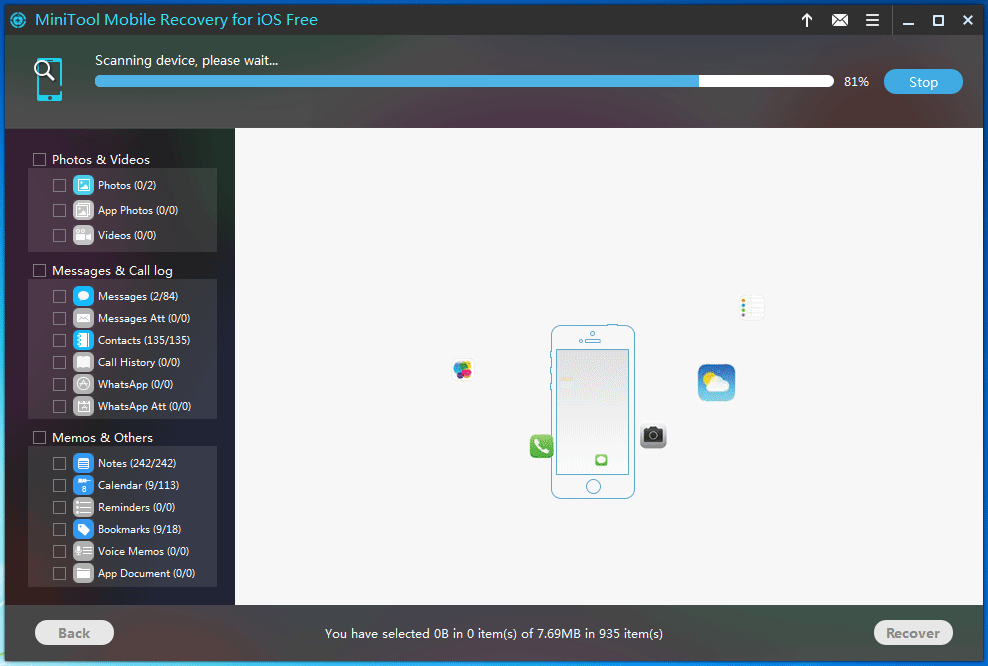
Step 7. After scanning, this software will list all found files and you can preview them. Then select the needed files and click the Recover button to store them. In general, although this software will automatically provide a place to store recovered files, you can click Browse to select a suitable place according to your actual needs.
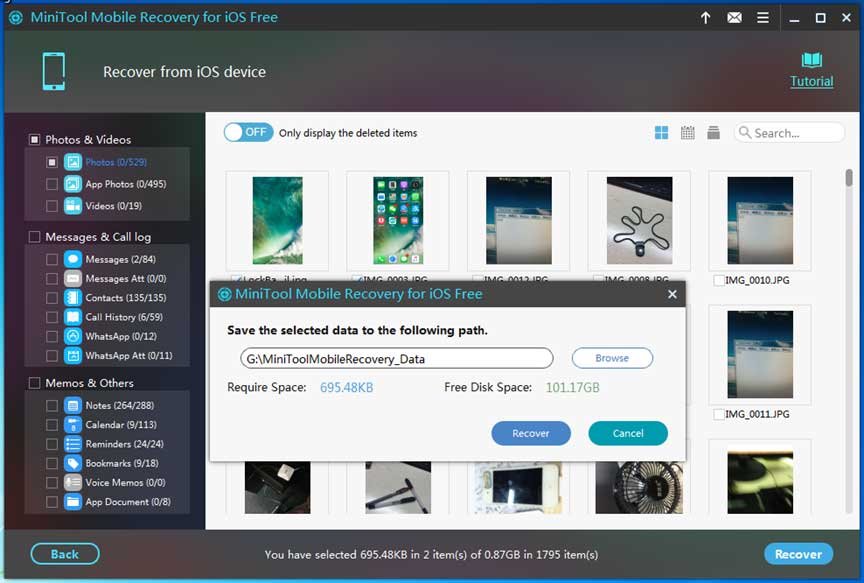
Tip: MiniTool Mobile Recovery for iOS Free Edition can only allow you to recover limited files. Therefore, if you want to break the data recovery limitations of the Free Edition for further use, you can choose MiniTool Mobile Recovery for iOS Full Version from the official website.
Now all work has been done and you have finished recovering lost data from your iOS device after factory resetting.
Solution 7. Restore Your iPhone with iTunes
Some users reported that they successfully solved the iPhone touch screen not working issue by restoring their iPhone with iTunes. You can try the below steps to solve the iPhone touch screen unresponsive after iOS 16.3 update problem.
Step 1. Connect your iPhone or iPad to your computer.
Step 2. Launch iTunes on your computer.
Step 3. Click on the Device tab in the upper left corner of the iTunes window.
Step 4. Choose Summary from the menu on the left side.
Step 5. Select Restore Backup in iTunes.
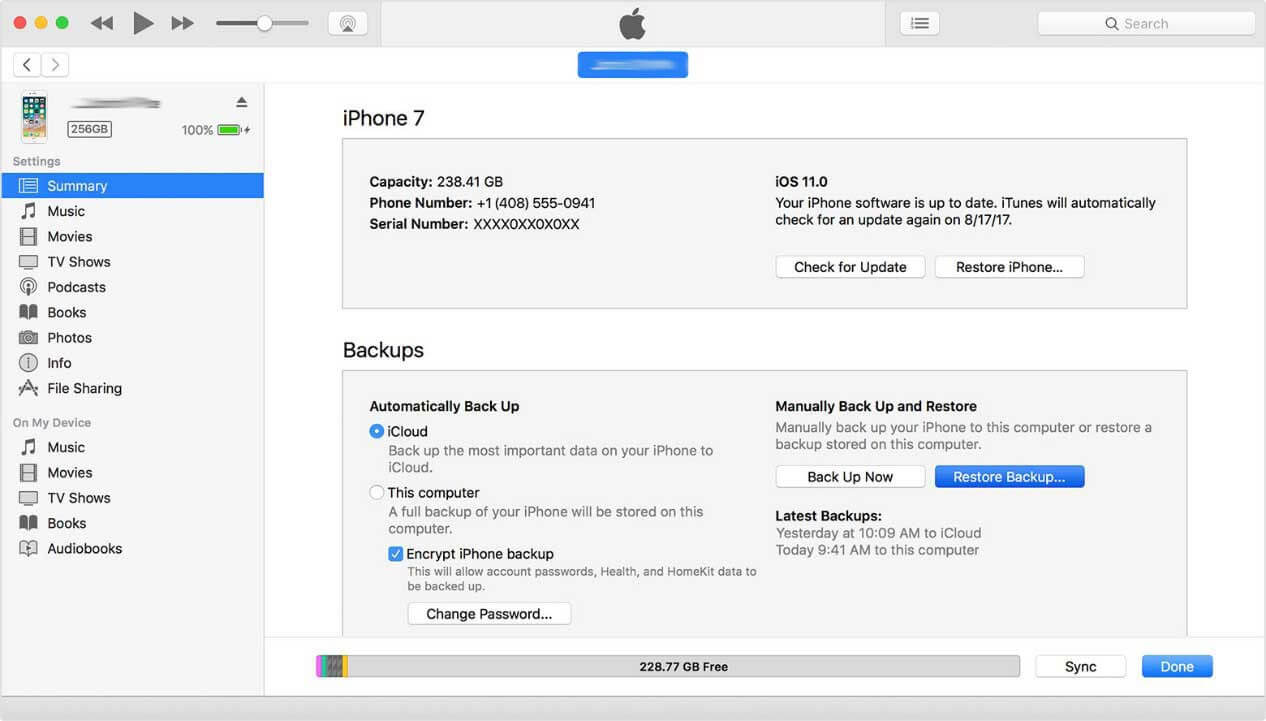
Step 6. Look at the date and size of each backup and pick the most relevant. Click Restore and wait for the process to complete.
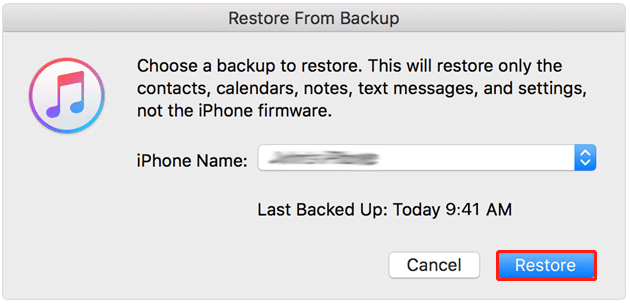
Solution 8. Contact Professional Help
If all the above troubleshooting methods don’t work, you should contact Apple support, go to an Apple offline store, or visit an Apple-authorized repair center for further assistance and recommendation.
Bottom Line
Now, you probably already know how to fix iPhone or iPad touch screen problems, like touch screen unresponsive, touch screen stops responding, etc.
If you have any other solutions on how to fix the iPhone touch screen unresponsive after iOS 16.3 update, please write them in the comment section, thanks. Should you have any questions regarding data recovery via using MiniTool Mobile Recovery for iOS, please send emails to [email protected]. We will solve them as soon as possible.
iPhone Touch Screen Not Working FAQ
- Restart iPhone Device.
- Adjust 3D Touch Sensitivity.
- Diagnose Third-party Apps in Safe Mode.
- Free up Space on iPhone.
- Downgrade to the Former iOS Version.
- Reset Your iPhone.
- Restore Your iPhone with iTunes.
- Contact Apple Support.
- The touch screen is broken or damaged.
- The phone crashed because of malicious or performance-draining apps.
The iPhone's touch screen does not have the concept of calibration. If your touch screen not working, you can try resetting your iPhone instead of your touchscreen. Go to Settings, and click on General. Then select Reset > Erase All Content and Settings.
- Hold and press the Sleep/Wake button and the Home button at the same time for a few seconds until the slider appears.
- Slide to power your device off.
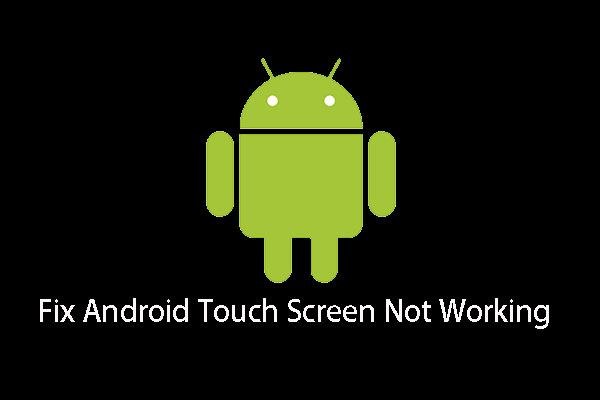

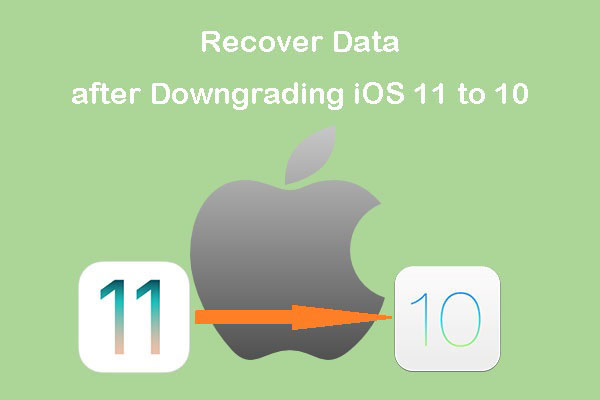
User Comments :